Choosing a publisher is really important! You want a publisher who will distribute your work to a wide audience while also lending you some extra credibility.
It's important to choose a high-quality publisher. Ideally, the publisher you choose will enhance (and definitely not detract from!) your credibility.
You may have heard that there are low-quality and even deceptive/"predatory" publishers out there. That's true! You should definitely be evaluating publishers with an eye to their quality.
But it's not just about avoiding the publishers that are outright deceptive; you should carefully evaluate any publisher that you are entrusting with your work.
Of course, you should choose a publisher in the area you want to publish, and specifically, you should choose a publisher whose audience you want to reach. Many authors find publishers by combing through their own bibliographies, or the bibliographies of works they are citing. Most journals have a note on their website describing their scope in detail, but it's even more informative to look through the tables of contents from their recent issues.
Paying attention to a journal's scope can also help you avoid low-quality or deceptive journals. Excessively broad scope is one sign that a journal may not be on the up-and-up (for instance, if a journal claims to cover multiple unrelated fields).
Measures such as Impact Factor and other citation metrics can provide a shortcut to understanding a journal's prominence within its field, but are of course not the final word on a journal's quality. Currently, the library does not have access to Journal Citation Reports, which publishes impact factors.
Peer review takes time. If a journal offers very fast turnaround times (for instance, less than a week), it's likely fraudulent.
A journal may have a large or small readership,but many readers of your article are likely not to be the regular readers of the journal. How do you make sure that you reach the largest audience you can?
Indexing. Check where your journal is indexed. Is it covered in the most important databases in your field?
Open access -- Open access journals (and books) have a very large potential readership, because they are available on the web to anyone who wants to read them. If the journal you are considering is not open access, or if it charges large fees that make it impractical to publish there, check to see whether the author's agreement allows you self-archive your work online. For more information, please see the page on author's rights.
Author's rights -- It's a good idea to make sure that you retain the right to archive your work online in some form. If you retain these rights, you can post your work in CUNY Academic Works or an appropriate disciplinary repository. Repositories get a lot of readers who are searching through Google and GoogleScholar.
Both open-access and toll-access publishing have attracted some low-quality publishers and publications. Even well-known academic publishers have been found to publish journals with little merit. You need to carefully evaluate any publisher or journal you are considering.
These resources will help you evaluate the criteria I've outlined above in more detail.
If you're not sure about a journal, you can also ask your colleagues -- or a librarian! Please feel free to contact me or your subject librarian with questions about individual journals.
